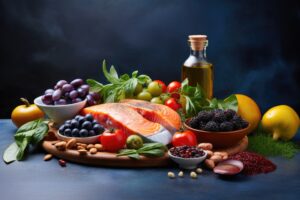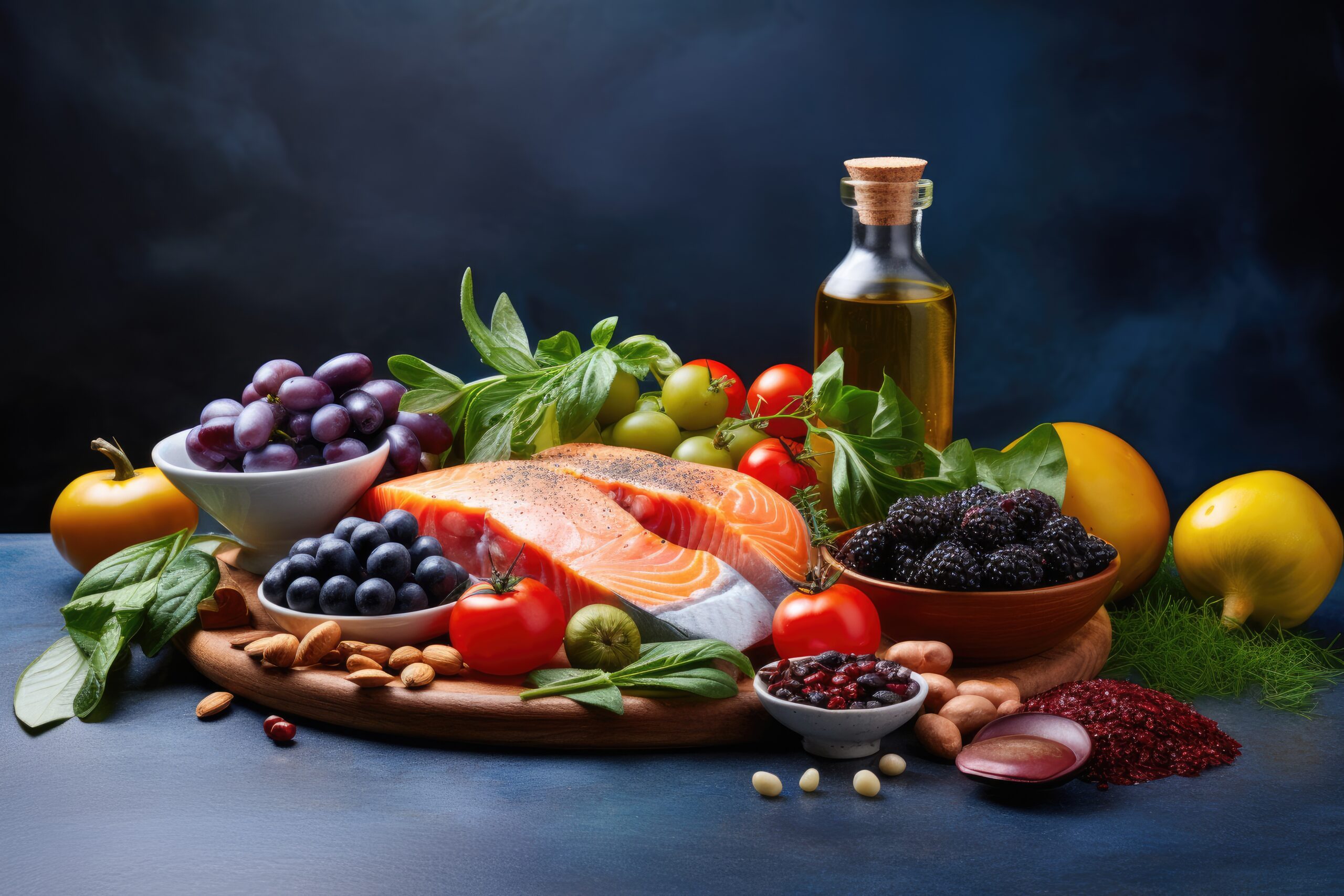Written by Dave James, ND, Licensed Naturopathic Physician, CT & AZ. The review adds to growing evidence that nutraceuticals derived from the Mediterranean Diet—including bergamot, cardoon, olive oil polyphenols, quercetin, and resveratrol—may reduce cancer risk and enhance treatment outcomes.
 Cancer continues to be one of the leading causes of mortality worldwide, with nearly 20 million new diagnoses each year and projections for steady increases in the coming decades. Cancer is not a single disease but a collection of disorders characterized by uncontrolled cell growth and complex interactions between genes and environmental influences. While conventional therapies such as surgery, chemotherapy, and immunotherapy save lives, they often cause substantial side effects and, over time, may lose effectiveness. This growing reality has led both researchers and clinicians to investigate complementary approaches that might reduce cancer risk, improve quality of life, and enhance treatment outcomes. 1
Cancer continues to be one of the leading causes of mortality worldwide, with nearly 20 million new diagnoses each year and projections for steady increases in the coming decades. Cancer is not a single disease but a collection of disorders characterized by uncontrolled cell growth and complex interactions between genes and environmental influences. While conventional therapies such as surgery, chemotherapy, and immunotherapy save lives, they often cause substantial side effects and, over time, may lose effectiveness. This growing reality has led both researchers and clinicians to investigate complementary approaches that might reduce cancer risk, improve quality of life, and enhance treatment outcomes. 1
One of the most consistent areas of evidence involves diet and lifestyle. The Mediterranean Diet, abundant in vegetables, fruits, legumes, olive oil, and whole grains, is strongly linked with lower rates of cardiovascular disease, diabetes, and cancer. Beyond simply providing nutrients, this eating pattern supports gut microbiota balance, reduces systemic inflammation, and lowers oxidative stress—processes that intersect directly with cancer biology. 4,5
A 2025 review article in Nutrients explored whether nutraceuticals—bioactive compounds derived from foods—within the Mediterranean Diet could help counter cancer development and progression. The review summarized preclinical evidence, mechanistic pathways, and limited clinical data, pointing to a promising role for several plant-based compounds. 4,5
Key Nutraceuticals Highlighted
Bergamot (Citrus bergamia):
Bergamot, native to southern Italy, is rich in polyphenols known for lowering oxidative stress and supporting metabolic health. In cancer models, extracts selectively stress malignant cells at higher concentrations, pushing them into apoptosis, or programmed cell death. 7
Cardoon (Cynara cardunculus):
A relative of the artichoke, cardoon, contains chlorogenic acid. These molecules behave as antioxidants in normal tissue but act as pro-oxidants in tumor cells, creating an internal imbalance that leads to apoptosis. 7
Olive oil (Olea europaea):
Olive oil is considered the cornerstone of the Mediterranean Diet. Its polyphenols, especially oleuropein, are anti-inflammatory, cardioprotective, and have been shown in lab studies to induce cancer cell death. Olive oil byproducts also contain high levels of bioactive compounds. From clinical experience, cold-pressed extra virgin olive oil offers the most benefit. 7
Quercetin:
A flavonoid abundant in onions, apples, and other produce, quercetin has dose-dependent effects. At lower levels, it protects healthy tissue by reducing oxidative stress, while at higher concentrations it disrupts cancer cell DNA, interferes with metabolism, and sensitizes tumors to chemotherapy. Clinically, quercetin has additional benefits for cardiovascular health. 7
Resveratrol:
Best known from red grapes and wine, resveratrol improves mitochondrial health and reduces inflammation. Like quercetin, it acts differently depending on dose: protective in healthy tissue, but pro-apoptotic in malignant cells. While red wine is not recommended as a health strategy, grapes and grape-derived supplements remain excellent sources of resveratrol. 7
Mechanisms of Action
The evidence links these nutraceuticals with several core pathways described in the “hallmarks of cancer” model. Their activity includes reducing inflammation and oxidative stress that drive tumor growth, promoting apoptosis in malignant cells while protecting healthy tissue, and shaping the tumor microenvironment through influences on the gut microbiome and immune system signaling. 6 They may also enhance the effectiveness of chemotherapy while reducing treatment-related toxicity and exploit genetic vulnerabilities, such as cancer cells’ sensitivity to oxidative stress. This dual action—protecting normal physiology while targeting malignant pathways—offers a particularly attractive therapeutic rationale. 7
Strengths and Limitations
The review emphasizes several strengths in this body of research. Evidence across numerous preclinical studies consistently demonstrates beneficial effects. Many compounds display selective activity, sparing normal tissue while impairing tumor growth. In addition, Mediterranean dietary patterns themselves are already validated for safety and for broad benefits to heart and metabolic health, giving added confidence in recommending them. 2,4,5
However, limitations remain. Most of the data comes from cell or animal studies rather than large-scale human trials. Dosage is not well defined—compounds such as quercetin and resveratrol act differently depending on whether they are consumed at low or high levels. Bioavailability is another concern, as some compounds are poorly absorbed from food sources, making supplement formulations necessary. Finally, supplement quality varies widely, so ensuring purity and potency is critical in clinical practice. 3
Clinical Perspective
From a naturopathic oncology standpoint, nutraceuticals should not be viewed as substitutes for conventional therapies but as supportive agents that may improve tolerance to treatment and help protect healthy cells. Integrating Mediterranean dietary principles is both safe and evidence-based. Patients are encouraged to emphasize colorful vegetables, legumes, fruits, whole grains, and high-quality olive oil. Herbs such as oregano, rosemary, and thyme also contribute antioxidant compounds.
In practice, many clinicians find success blending Mediterranean and Asian dietary traditions, a fusion that overlaps with “Blue Zone” longevity regions and offers a culturally sensitive approach. In supplementation, clinical pearls include choosing cold-pressed olive oil for maximum efficacy and using quercetin not only for its anticancer potential but also for cardiovascular support.
Conclusion
The review adds to growing evidence that nutraceuticals derived from the Mediterranean Diet—including bergamot, cardoon, olive oil polyphenols, quercetin, and resveratrol—may reduce cancer risk and enhance treatment outcomes. Their mechanisms align with known cancer biology, targeting inflammation, oxidative stress, and tumor cell survival while sparing normal tissues. While clinical trials are still limited, these findings support the practical recommendation of a Mediterranean-style diet as a safe, effective, and culturally adaptable strategy.
Future research must clarify optimal dosages, improve bioavailability, and test these compounds in rigorous clinical trials. Until then, emphasizing whole foods and Mediterranean eating patterns remains the most practical, evidence-informed approach for both cancer prevention and survivorship.
Source: Altomare, Carmen, Roberta Macrì, Maria Serra, Sara Ussia, Giovanna Ritorto, Jessica Maiuolo, Carolina Muscoli, Enzo Perri, and Vincenzo Mollace. “The Potential of Nutraceutical Supplementation in Counteracting Cancer Development and Progression: A Pathophysiological Perspective.” Nutrients 17, no. 14 (2025): 2354.
© 2025 by the authors. Licensee MDPI, Basel, Switzerland. This article is an open access article distributed under the terms and
conditions of the Creative Commons Attribution (CC BY) license (https://creativecommons.org/licenses/by/4.0/).
Click here to read the full text study.
Posted September 3, 2025.
Dave James, ND, is a licensed naturopathic physician in Connecticut and Arizona and a proud alumnus and former Board of Trustees member of Sonoran University of Health Sciences. Dr. James focuses on chronic pain and supportive care for persons with a diagnosis of cancer, including survivorship. He now delivers CME presentations alongside patient care. Deeply committed to public health and equity, Dr. James is a passionate advocate for expanding licensure for naturopathic physicians nationwide so that all patients—regardless of socioeconomic status—can access high-quality, evidence-informed integrative care. He believes the doctor–patient relationship is sacred and central to healing.
References:
- WHO. Cancer. World Health Organization: Geneva, Switzerland, 2024. Available online: https://www.who.int/news-room/fact-sheets/detail/cancer (accessed 13 June 2025).
- Hausman DM. What Is Cancer? Perspect Biol Med. 2019;62:778–784.
- Mumtaz S, Akhtar N, Ahmed A, Qazi AS. Dietary Pattern and Cancer. Cancer Treat Res. 2024;191:191–216.
- Guasch-Ferré M, Willett WC. The Mediterranean diet and health: A comprehensive overview. J Intern Med. 2021;290:549–566.
- Barber TM, Kabisch S, Pfeiffer AFH, Weickert MO. The Effects of the Mediterranean Diet on Health and Gut Microbiota. Nutrients. 2023;15:2150.
- Hanahan D. Hallmarks of Cancer: New Dimensions. Cancer Discov. 2022;12:31–46.
- Levatić J, Salvadores M, Fuster-Tormo F, Supek F. Mutational signatures are markers of drug sensitivity of cancer cells. Nat Commun. 2022;25:2926.







Comments (0)